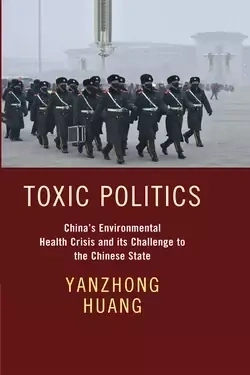
Toxic Politics
China’s Environmental Health Crisis and Its Challenge to the Chinese State

CFR Senior Fellow Yanzhong Huang discusses how China’s environmental crisis is undermining public health and becoming an Achilles heel in its reemergence as a global power.
- Book
- Foreign policy analyses written by CFR fellows and published by the trade presses, academic presses, or the Council on Foreign Relations Press.
More on:
Environmental degradation in China has not only brought a wider range of diseases and other health consequences than previously understood, it has also taken a heavy toll on Chinese society, the economy, and the legitimacy of the party-state. In Toxic Politics, Yanzhong Huang presents new evidence of China’s deepening health crisis and challenges the widespread view that China is winning the war on pollution. Although government leaders are learning, stricter and more centralized policy enforcement measures have not been able to substantially reduce pollution or improve public health. Huang connects this failure to pathologies inherent in the institutional structure of the Chinese party-state, which embeds conflicting incentives for officials and limits the capacity of the state to deliver public goods. Toxic Politics reveals a political system that is remarkably resilient but fundamentally flawed. Huang examines the implications for China’s future, both domestically and internationally.
Educators: Access Teaching Notes for Toxic Politics.
More on:
In the News
‘Toxic Politics’ Review: Can Xi Jinping Clean House?Wall Street Journal
What will it take for Beijing to meet its climate goals? Changing how it governs entirelyFortune
 Online Store
Online Store